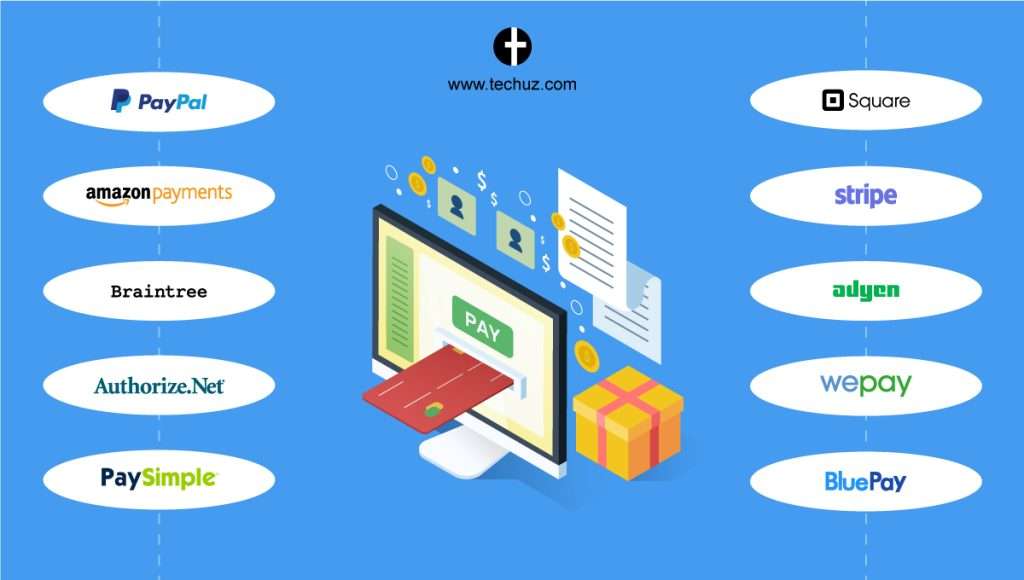AUTHOR: SAYYED NUZAT
DATE: 31-08-2023
In the ever-evolving world of e-commerce, businesses are increasingly relying on digital payment systems to facilitate smooth transactions between buyers and sellers. A crucial part of this system is the website payment gateway[1]. However, many businesses are often unclear about the associated costs. Understanding website payment gateway charges[2] is essential for any business looking to streamline its payment process while keeping costs manageable.
In this article, we’ll break down everything you need to know about website payment gateway charges, including how they are structured, the factors that affect these costs, and why they vary between different providers. By the end, you’ll have a better understanding of how to choose the right payment gateway[3] for your business and manage these costs effectively.
What Is a Website Payment Gateway?

A website payment gateway is a digital service that processes payments[4] between buyers and sellers in online transactions. When a customer enters their credit or debit card information on your website, the payment gateway securely transmits this data to your payment processor[5] and then to your bank to authorize or decline the payment.
The primary function of a payment gateway is to provide a secure, encrypted channel for payment data and to ensure that funds are transferred from the customer’s bank to the merchant’s account.
Why Are Website Payment Gateway Charges Important?
Understanding website payment gateway charges is crucial because these costs can have a significant impact on your profit margins, especially if you run a high-volume business. By knowing what charges you are likely to incur, you can plan your budget more effectively and choose the right payment provider for your business.
Types of Payment Gateway Charges
Transaction Fees
Transaction fees are charges incurred with every successful purchase. They usually consist of a fixed amount per transaction along with a percentage of the total transaction value. These fees contribute to covering the operational costs of payment processing.
Set-up Fees
Set-up fees are one-time charges for integrating the payment gateway into your website. Some providers may waive this fee to attract businesses, while others might require it to cover initial setup expenses.
Monthly Subscription Fees
Monthly subscription fees are regular payments made by businesses to access and utilize the payment gateway’s services. They often come with varying tiers, each offering different features and transaction limits.
Cross-Border and Currency Conversion Fees
For businesses operating globally, cross-border and currency conversion fees come into play when transactions involve different currencies. These fees account for the additional complexity of currency exchange.
Chargeback Fees
Chargeback fees are levied when a customer disputes a transaction and requests a chargeback through their bank. This fee covers the administrative costs associated with investigating and resolving chargeback claims.
Additional Feature Fees
Certain payment gateways present supplementary features such as advanced fraud detection tools, comprehensive analytics, and the option for customizable checkout pages. It’s important to note that opting to utilize these added features commonly results in the imposition of additional charges.
Factors Influencing Website Payment Gateway Charges

Transaction Volume
The volume of transactions you process each month plays a significant role in determining your payment gateway costs. High-volume businesses may qualify for lower transaction fees, as providers often offer discounted rates for large transaction volumes.
Type of Business
Some payment gateway providers offer customized pricing based on the nature of your business. For example, high-risk industries (such as travel or gambling) may face higher fees due to the increased likelihood of chargebacks and fraud.
Payment Methods Accepted
The more payment options you offer to your customers (credit cards, debit cards, PayPal, Apple Pay, etc.), the more likely you are to face higher website payment gateway charges. Each payment method comes with its own set of processing fees, which can add up.
Customer Location
As mentioned earlier, cross-border transactions can result in additional fees. The geographic location of your customers plays a key role in determining these extra costs. Providers may charge different fees based on where your business or your customers are located.
Security and Compliance
Some payment gateways offer advanced security features like PCI DSS (Payment Card Industry Data Security Standard) compliance, which is essential for businesses handling credit card payments. While these security features are crucial for protecting customer data, they may come with additional costs.
How to Minimize Website Payment Gateway Charges
Negotiate Better Rates
If you process a high volume of transactions, don’t hesitate to negotiate your rates with the payment gateway provider. Many companies are open to offering discounts for businesses that bring in significant transaction volume.

Choose the Right Payment Gateway
Not all payment gateways are created equal. Compare the fees, features, and transaction limits of different providers to find the best fit for your business. Look for one that offers transparent pricing and a range of payment methods without unnecessary extra charges.
Reduce Chargebacks
Chargebacks are a significant source of additional costs. Implement strong fraud prevention systems and clear return policies to minimize disputes and the associated fees.
Optimize Payment Methods
Consider offering a limited number of payment methods. The more payment options you provide, the more complex the transaction process becomes, which can increase your costs.
Monitor Transaction Fees
Regularly review your transaction fees and adjust your business practices accordingly. If your fees are rising, it may be time to renegotiate with your provider or switch to a more cost-effective option.
Conclusion
Understanding website payment gateway charges is crucial for any business involved in online sales. By familiarizing yourself with the various fees involved and understanding the factors that affect these costs, you can make informed decisions that help reduce expenses while providing a smooth and secure payment process for your customers. Choose the right provider, negotiate fees, and monitor transaction costs regularly to ensure that your payment gateway remains an asset to your business.
(FAQ)
1. What is the average cost of a website payment gateway?
The average cost typically ranges from 2.9% to 3.5% per transaction plus a flat fee of $0.30 per transaction. However, these costs can vary based on the payment gateway provider, the nature of your business, and your transaction volume.
2. Are there any hidden fees associated with website payment gateways?
Some payment gateways may have hidden fees, such as fees for chargebacks, currency conversion, or premium features. Always read the fine print before signing up with a provider to avoid unexpected charges.
3. Can I reduce website payment gateway charges?
Yes, by negotiating with providers, choosing the right payment gateway, and reducing chargebacks, you can lower the overall cost of payment processing.
4. Do all payment gateways charge a setup fee?
Not all payment gateways charge a setup fee. Many modern gateways offer free setup with easy integration options, especially for small businesses.
5. Can I switch payment gateways if the fees become too high?
Yes, you can switch payment gateways at any time, but keep in mind that the transition may involve some initial setup costs and time to integrate the new system into your website.





